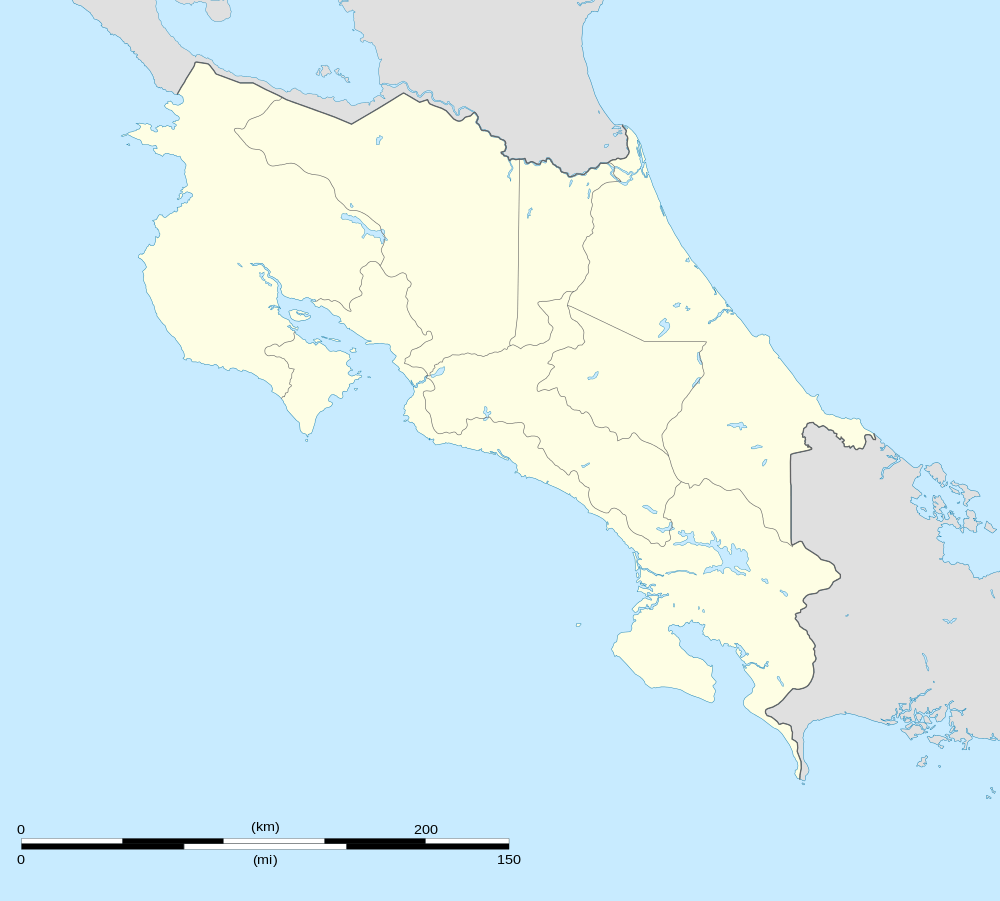Guápiles, Pococí
Guápiles is the first district of the Canton of Pococí, in the Province of Limón, Costa Rica.
Guápiles | |
|---|---|
District | |
 Guápiles | |
| Coordinates: 10°12′56″N 83°47′32″W | |
| Country | |
| Province | Limón |
| Canton | Pococí |
| Area | |
| • Total | 226.19 km2 (87.33 sq mi) |
| Elevation | 268 m (879 ft) |
| Population (2011) | |
| • Total | 36,469 |
| • Density | 160/km2 (420/sq mi) |
| Time zone | UTC−06:00 |
| ZIP codes | 70201 |
Location
The head city is Guápiles, one of the majors outside of the Central Valley (Costa Rica). It is 64 km to the northeast of the capital city of Costa Rica, on the route 32. The city of Limón is to 99 km to the east.
Toponymy
The origin of the name of Guápiles seems to come from the two rivers that run to both sides of the population, since they are said that they are "Guapes" (Twins). Whereas Pococí, name of the canton, corresponds to the name of the native cacique that inhabited this place to the arrival of the Spaniards. Other caciques that inhabited the region were Camaquiri and Cocorí mentioned in historical primers and national Literature.
Geography
It has an area of 259.97 km².
Guápiles is settled to an altitude of 268[1] meters and is considered the main door of entrance to the Costa Rican Caribbean.
Demography
Guápiles has an estimated population of 36,469[2] inhabitants, being the second most populous district of the province, after the center of Limón (with 61,072 inhabitants).
The population centers of the district are:
- City: Guápiles
- Neighborhoods:
- Angeles
- Vargas
- Cacique
- Cecilia
- Coopevigua
- Diamantes
- Emilia
- Floresta
- Garabito
- Jesus
- Palma Dorada
- Palmera
- San Miguel
- Sauces
- Toro Amarillo
- Villages:
- Blanco
- Ángeles
- Gobierno
- Corinto
- Flores
- La Guaria
- Marina
- Rancho Redondo
- Neighborhoods:
Economic activity
At present (as in the rest of the Caribbean zone), the main economic activities are agricultural sector: banana and pineapple, sowing of basic grains and livestock activity.
There are regions of great tourist interest for the beauty of the landscape.
See also
References
- "Rural Territorial Development Plan of Pococí" (pdf). INDER.
- "2011 Census Population Report" (PDF). INEC. Archived from the original (pdf) on 2017-08-07. Retrieved 2017-08-10.